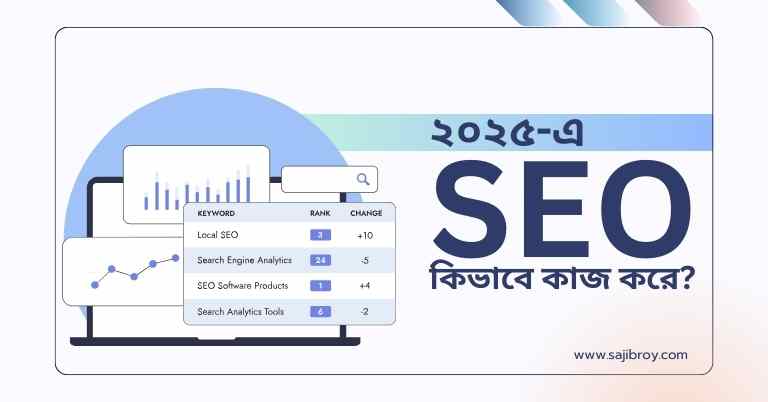Looking to Boost Your Website’s Visibility and Build Real Authority Online?
Paid guest posting can be a game-changer—if you know how to use it the right way. It’s not just about paying for a spot on someone’s blog. It’s about placing your brand in front of the right audience, earning trust, and driving qualified traffic that actually converts. But here’s the truth: many businesses throw money at low-quality sites and see little to no return. In this guide, we’ll break down the proven strategy for successful paid guest posting, so you get real results without wasting your budget or risking penalties.
RELATED CONTENT:
- Google’s Top #11 SEO Ranking Factors
- Toxic Backlinks: Eliminate the Threat With These Strategies!
- How Do I Increase Quality Backlinks in SEO?
Let's See the Topic Overview
Key Benefits Of Paid Guest Posts
Paid guest posts are a powerful tool in your digital marketing strategy, offering numerous benefits to your brand. By investing in paid guest posts, you can unlock a world of opportunities to increase website traffic, enhance credibility and brand exposure, and improve your SEO rankings. Let’s dive deeper into these key benefits:
Increased website traffic
Paid guest posts are an excellent way to drive targeted traffic to your website. When you publish content on reputable and relevant websites within your industry, you have an opportunity to attract readers who are genuinely interested in your niche. These readers are more likely to click through to your website, contributing to a boost in traffic. As your content reaches a wider audience, the potential for new leads, customers, and conversions increases.
Enhanced credibility and brand exposure
Guest posting on influential websites helps establish your brand as a thought leader and industry expert. When you publish high-quality content and provide valuable insights, readers perceive your brand as trustworthy and reliable. This credibility builds over time as you contribute to various platforms, creating a positive reputation and brand exposure. With increased visibility and recognition, your brand gains authority and attracts a loyal following.
Improved SEO rankings
Search engine optimization (SEO) is a crucial aspect of any successful online presence. By engaging in paid guest posts, you can strategically enhance your SEO efforts. When your guest posts contain relevant keywords, backlinks to your website, and are published on authoritative websites, search engines recognize the value you offer. As a result, your website’s rankings in search engine results pages (SERPs) improve. Higher rankings mean increased visibility, organic traffic, and a greater chance of reaching your target audience.
Paid guest posts provide a range of key benefits, including increased website traffic, enhanced credibility and brand exposure, and improved SEO rankings. By incorporating paid guest posting into your marketing strategy, you can propel your brand’s visibility, authority, and success.
Choosing The Right Platforms For Guest Posting
Choosing the right platforms for guest posting is crucial to the success of your content marketing strategy. It requires a strategic approach to make sure your guest posts reach the right audience and provide value to both your brand and the platform you publish on. In this post, we will explore three key factors to consider when selecting platforms for guest posting: the relevance and authority of the website, audience engagement and reach, and the quality of existing content and backlinks. Let’s dive in!
Relevance and authority of the website
When choosing platforms for guest posting, it’s important to prioritize websites that are relevant to your niche or industry. Publishing on websites that align with your brand and target audience increases the chances of reaching the right people and driving traffic back to your own site.
Another crucial factor to consider is the authority of the website. Higher authority websites not only provide more credibility to your guest posts but also have a bigger impact on your own search engine rankings. Look for websites with a strong domain authority and a proven track record of high-quality content.
Audience engagement and reach
Audience engagement and reach are essential when it comes to guest posting. You want to publish your content on platforms that have an active and engaged audience. Look for websites that have a strong social media presence, regular comments or discussions on their articles, and a solid email subscriber base.
Consider the reach of the website as well. How many visitors does it get on a monthly basis? How engaged are these visitors? Guest posting on platforms with a large and engaged audience increases the chances of your content being seen, shared, and ultimately driving more traffic back to your own website.
Quality of existing content and backlinks
The quality of existing content and backlinks on a platform can indicate the overall value and effectiveness of guest posting. Look for websites that consistently produce high-quality content that is relevant, informative, and well-written.
Additionally, consider the backlink profile of the website. Are there other reputable websites linking to their content? Are the existing backlinks diverse and from relevant sources? This is important because guest posts published on platforms with a strong backlink profile can significantly improve your own website’s search engine rankings and visibility.
Choosing the right platforms for guest posting is crucial for the success of your content marketing strategy. By considering the relevance and authority of the website, audience engagement and reach, and the quality of existing content and backlinks, you can maximize the impact of your guest posts and drive more traffic to your own website. Take the time to research and identify platforms that align with your brand and target audience, and you will reap the benefits in terms of increased visibility, credibility, and ultimately conversions.
Crafting Engaging Content For Guest Posts
In order to create content that captivates your audience and drives traffic to your website, it’s important to invest time and effort into crafting engaging guest posts. Whether you’re new to guest posting or looking to improve your technique, these strategies will help you create content that resonates with your target audience and generates valuable traffic.
Researching the target audience and their interests
Before starting the writing process, it’s crucial to understand who your target audience is and what they’re interested in. By conducting thorough research, you can tailor your content to meet their needs and provide value. To research your target audience:
- Identify the demographic you want to reach, including age, gender, location, and interests.
- Use tools like Google Analytics, social media analytics, or customer surveys to gain insights into your audience’s preferences.
- Explore online communities, forums, and social media groups where your target audience is active to understand their pain points and topics they engage with.
Analyzing popular topics and trends
In order to create guest posts that resonate with your audience, it’s important to keep up with the latest industry trends and popular topics. By staying informed, you can create content that is timely, relevant, and interesting to your readers. To analyze popular topics and trends:
- Follow industry influencers and publications to stay updated on the latest news and developments.
- Monitor social media platforms to identify trending topics and hashtags.
- Utilize tools like Google Trends or Buzzsumo to identify popular keywords and topics in your industry.
Writing compelling headlines and introductions
The headline and introduction are the first things your audience will see, so it’s crucial to make them compelling and captivating. These elements should grab attention and entice readers to continue reading your guest post. To write compelling headlines and introductions:
- Use powerful and attention-grabbing words in your headline to catch your audience’s interest.
- Clearly communicate the value your content provides to readers in the introduction.
- Use storytelling techniques to engage your audience from the very beginning.
By following these strategies, you can craft engaging content for your guest posts that not only appeals to your target audience but also helps boost your website’s visibility and drive valuable traffic. Remember to always tailor your content to your audience, stay updated on industry trends, and make a strong first impression with your headlines and introductions.
Optimizing Your Content For SEO
When it comes to paid guest posts, optimizing your content for SEO is crucial. By incorporating relevant keywords naturally, using descriptive meta tags and alt text, and structuring your content with headings and subheadings, you can improve the visibility and search engine ranking of your guest post. In this article, we will discuss these optimization techniques in more detail.
Incorporating relevant keywords naturally
Keywords play a vital role in determining how search engines understand and rank your content. By incorporating relevant keywords naturally throughout your content, you can signal to search engines that your guest post is relevant to specific search queries. Remember to choose keywords that are highly relevant to your topic and align with the intent of your target audience.
When incorporating keywords, it’s important to ensure that they flow naturally within the context of your content. Avoid keyword stuffing, which refers to the excessive and unnatural use of keywords in an attempt to manipulate search engine rankings. Instead, focus on creating high-quality content that is informative, engaging, and provides value to your readers.
Using descriptive meta tags and alt text
Meta tags and alt text are important HTML attributes that provide additional information about your content to search engines. Meta tags are snippets of text that describe the content of a webpage, while alt text provides a textual description of an image.
When optimizing your content for SEO, it’s essential to include relevant and descriptive meta tags that accurately depict the content of your guest post. This not only helps search engines understand what your content is about but also entices users to click on your link when it appears in search engine results.
Similarly, when using images within your guest post, make sure to provide alt text that describes the image. This helps search engines understand the context of the image and can improve the accessibility of your content for visually impaired users.
Structuring content with headings and subheadings, ensuring each H3 heading adheres to HTML syntax
Structuring your content with headings and subheadings not only makes it more visually appealing but also helps search engines understand the hierarchy and organization of your content. Using HTML syntax, you can designate different levels of headings, with H1 being the highest level and H6 being the lowest. Each H3 heading should adhere to HTML syntax and accurately represent the content of the section it introduces. By using headings and subheadings effectively, you can give search engines a clear understanding of the main topics covered in your guest post, making it more likely to appear in relevant search results.
Remember, optimizing your content for SEO is an ongoing process. Continuously monitor the performance of your guest post and make adjustments as necessary to improve its visibility and search engine ranking.
Building Quality Backlinks Through Guest Posts
Guest posting is an effective way to build quality backlinks, improving your website’s visibility and authority in the eyes of search engines. By writing and publishing content on authoritative websites in your niche, you can establish valuable connections and direct traffic to your own site. In this article, we will explore three key strategies for successful guest posting – identifying authoritative websites for link placement, crafting compelling anchor text for backlinks, and establishing relationships with target websites.
Identifying authoritative websites for link placement
When it comes to guest posting, it’s crucial to choose authoritative websites that align with your industry or niche. These websites should have a high domain authority and a strong readership. To identify such websites, you can:
- Conduct a thorough keyword research to find websites that rank highly for relevant keywords.
- Use tools like Moz’s Open Site Explorer or SEMrush to analyze the domain authority and backlink profile of potential websites.
- Look for websites that have a track record of publishing high-quality, informative content.
By targeting authoritative websites, you can ensure that the backlinks you generate through guest posting are more valuable and impactful for your website’s ranking.
Crafting compelling anchor text for backlinks
Anchor text plays a crucial role in the effectiveness of your backlinks. Crafting compelling and relevant anchor text not only improves the user experience but also helps search engines understand the context of the linked page. When creating anchor text for your guest post backlinks, follow these best practices:
- Include the target keyword or key phrase in the anchor text, making it more relevant to search engines.
- Avoid generic anchor text like “click here” or “learn more” and opt for descriptive text that accurately represents the content it is linking to.
- Keep the anchor text concise and natural, avoiding excessive keyword stuffing.
By optimizing your anchor text, you can enhance the value of your backlinks and increase the chances of improving your search engine rankings.
Establishing relationships with target websites
Establishing relationships with target websites is crucial for guest posting success. By building connections and gaining the trust of website owners or editors, you can increase the likelihood of your guest post submissions being accepted. Here are some ways to establish relationships:
- Start by engaging with their content through comments or social media shares.
- Follow the website’s guidelines for guest posting and make sure to adhere to them meticulously.
- Reach out to website owners or editors through personalized and professional emails, expressing your interest in contributing valuable content.
- Suggest topic ideas that are relevant to their audience and showcase your expertise in the field.
By investing time and effort in building relationships with target websites, you can increase your chances of securing guest post opportunities and solidify your position as a trusted contributor in your niche.
Building quality backlinks through guest posts requires a strategic approach. By identifying authoritative websites, crafting compelling anchor text, and establishing relationships with target websites, you can boost your website’s visibility, authority, and search engine rankings.
Pitching And Negotiating Paid Guest Post Opportunities
Pitching and negotiating are essential steps in securing paid guest post opportunities. Crafting a personalized and concise pitch email, demonstrating expertise and value to the website owner, and negotiating fair compensation and link placement are key elements in making a successful deal. In this post, we will delve deeper into each of these areas, providing you with practical strategies to navigate the world of paid guest posting.
Crafting a personalized and concise pitch email
When reaching out to website owners for paid guest post opportunities, it is crucial to craft a pitch email that is both personalized and concise. This will demonstrate your professionalism, attention to detail, and respect for the recipient’s time.
Here’s a suggested structure for your pitch email:
- Start with a warm and friendly introduction to establish rapport.
- Clearly state your purpose and intention, emphasizing that you are interested in contributing a valuable guest post to their website.
- Highlight your expertise and relevant credentials, showcasing why you are the right fit for their audience.
- Provide a few topic ideas or suggestions for the guest post, tailored to their website’s niche and audience.
- Showcase samples of your previous work to demonstrate the quality of your writing and knowledge in the field.
- Request a mutually convenient time to discuss further details, such as compensation and link placement.
- End the email with a sincere thank you and your contact information.
Remember, keep your pitch email concise and to the point. Long, meandering emails are likely to be ignored or deleted. Craft the email as if you were having a conversation, and show genuine interest in contributing value to their website.
Demonstrating expertise and value to the website owner
As a paid guest post contributor, it is important to demonstrate your expertise and value to the website owner. This will help them see the benefit of having you contribute to their platform. Here are some strategies to effectively showcase your expertise:
- Showcase relevant experience and credentials, such as degrees, certifications, or previous guest post contributions.
- Highlight any industry recognition or awards you have received.
- Share statistics, case studies, or success stories that demonstrate your knowledge and expertise.
- Provide testimonials or endorsements from past clients or website owners you have collaborated with.
- Mention any unique perspectives or insights you can bring to their audience.
By effectively conveying your expertise and value, you will increase the likelihood of website owners recognizing your credibility and being receptive to your guest post proposal.
Negotiating fair compensation and link placement
When it comes to negotiating fair compensation and link placement for your paid guest post, it is important to approach the discussion with clarity, professionalism, and respect. Here are some tips to help you navigate the negotiation process:
- Research the market rates for guest posts in your industry to come up with a realistic and fair compensation range.
- Highlight the value you will bring to their website’s audience through your content.
- Propose a win-win situation by offering additional benefits, such as social media promotion or including relevant internal links in the guest post.
- Be open to negotiation and willing to consider alternative forms of compensation.
Remember, negotiating fair compensation and link placement is a collaborative process. Approach the discussion with a mindset of finding a mutually beneficial agreement where both parties feel satisfied.
Monitoring Results And Making Improvements
When it comes to paid guest posts, it is essential to monitor the results and make continuous improvements to enhance the effectiveness of your campaign. This involves tracking website traffic and engagement metrics, analyzing referral sources and conversion rates, and making adjustments to improve future guest posts. By closely monitoring these aspects, you can identify what works and what doesn’t, allowing you to optimize your guest posting strategy for maximum impact.
Tracking website traffic and engagement metrics
One of the key aspects of monitoring the success of your paid guest posts is tracking the website traffic and engagement metrics they generate. This can provide valuable insights into the effectiveness of your posts in driving traffic to your site and engaging your target audience. By using tools like Google Analytics, you can measure important metrics such as page views, bounce rates, time on page, and conversion rates. Pay close attention to which guest posts are generating the most traffic and engagement, as this can help you identify the types of content that resonate well with your audience.
Analyzing referral sources and conversion rates
Another crucial element of monitoring the results of your guest posting efforts is analyzing referral sources and conversion rates. By examining where your website traffic is coming from and how well it converts into leads or sales, you can gain valuable insights into the effectiveness of your guest posts in driving conversions. Dive deep into the data to identify which referral sources are bringing in the most qualified leads and producing the highest conversion rates. This analysis will help you understand which websites or platforms are driving the most value for your guest posting campaign.
Making adjustments to improve future guest posts
Based on the insights gained from tracking website traffic, engagement metrics, referral sources, and conversion rates, it’s crucial to make adjustments to improve future guest posts. This could include refining your content strategy, targeting specific websites or platforms that have brought in the best results, or optimizing your call-to-action to increase conversions. Remember, guest posting is an iterative process, and continuous improvement is key to achieving long-term success. By analyzing the data and making data-driven adjustments, you can ensure that each guest post you publish is better than the last.
Conclusion
To sum up, Google’s guidelines on paid guest posts are clear and concise. It is essential to follow these guidelines in order to maintain a strong and reputable online presence. The key takeaway is that guest posting should be done for the purpose of sharing knowledge and valuable information, rather than solely for the purpose of gaining backlinks.
It is crucial to prioritize quality over quantity when it comes to guest posting. Building relationships with reputable websites and providing high-quality content not only helps to enhance visibility but also establishes credibility and trust with the audience. By avoiding manipulative practices and focusing on creating valuable content, businesses can thrive and succeed in the digital landscape.
So, let’s embrace Google’s recommendations and adopt ethical guest posting strategies to ensure a sustainable and rewarding online presence.












